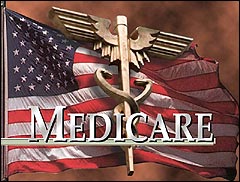
The holiday rush is over and the New Year is upon us. It may seem like a good time to settle down and put yourself back into the pace of new activities. While this may be true for most people, accountants and bookkeepers are readying themselves for the final closing of the previous year's financial statements. Their focus is on closing the year end books. What makes this different is that, while individual tax returns are due by April 15, corporation tax returns are due by March 15 (if your fiscal year ends on December 31). This makes for a very fast paced, hectic 75 days. What is all the fuss about and how much actually takes place in this time-frame? Consider this:
First, corporations are required shortly after year-end to file 1099's which report specific payments made to specific vendor types (for instance, the association attorney).
If your association has employees, the year-end means filing quarterly and yearly payroll reports, usually to both federal and state agencies. In addition, association employees receive a W-2 and the association must report employee earnings to the social security administration.
Once you have prepared the year-end financial statements, the Board and/or accountant should do a final review and analysis of the reports, based on whether the association uses one of these accounting methods:
- Cash: has income been recognized when received and expenses recognized when paid?
- Accrual: method has income been recognized when earned, and expenses recognized when incurred?
- Modified accrual: has income been recognized when earned and expenses recognized when billed?
When reviewing the financial statements, take into account if the numbers abide by these characteristics:
- Materiality means that transactions that have a material affect on the financial position of the association must be reported.
- Consistency means that transactions are budgeted and recorded in the same manner from month to month. Proper use of the chart of accounts aids in consistency.
- Accuracy means that transactions are computed correctly.
- Conservatism means that transactions are neither understated nor overstated.
At a minimum, the association should prepare and the auditors will be looking for these reports:
- Balance sheet
- Statement of revenue and expenses
- Statement of cash flows
- Changes in fund balance
Most association documents require some sort of audit process to be performed at certain specified intervals. The key point for a successful audit is to BE PREPARED. Ask the auditors for an initial list of the documents they will want to examine, and ensure that those documents will be readily available. Inform your staff of the audit's purposes and timing, assure them that it's a normal business procedure, and tell them to be relaxed and open with the auditors. Let them know that the auditors are free to interview them and examine documents relevant to the audit purposes. Also advise them that the auditors will minimize use of their time, as much as possible. If the audit is to be done at your premises, as is customary, arrange for an appropriate workspace for the auditors for the estimated audit period.

Audits fall into one of three types:
- Compilation does not examine the records or procedures. It merely re-states the information presented by the association into an annual financial report.
- Review is an analysis of the association's financial operations. Internal testing is completed that will include policies and procedures that protect and safeguard the association's funds. Comments may include trend analysis, budget variances, and reserve analysis.
- Audit is a comprehensive examination of the association's financial operations. There are internal and external tests conducted that provide some assurances of the association's financial operations. An audit will result in a written opinion regarding the association's financial operations.
Your accountant and/or auditor will generally be the one to prepare the association's Federal Income Tax Returns (and state income tax return, if applicable). A few common statements about association income tax returns:
- All organizations are taxable on their income unless specifically exempted.
- All associations must file a Federal tax return every year.
- Federal tax returns are due 75 days after the end of the association's fiscal year (for instance if the association's fiscal year end is June 30, the federal tax returns would be due September 15.
The association can file as a regular corporation IRS Form 1120 or as a homeowners association IRS Form 1120H. Both forms are available online at www.irs.gov.
- Your tax accountant will be able to determine which method is
best for the association. - If your association has significant non-owner income, it may be advantageous to research ways to reduce potential income tax liability.
As you can see, year-end financial statements require a little more work and a short window of time to complete all the activities. Preparation for these steps should begin in late fall by contacting your accountant and working with your accounting staff to be ready.
 Print
Print Email
Email







